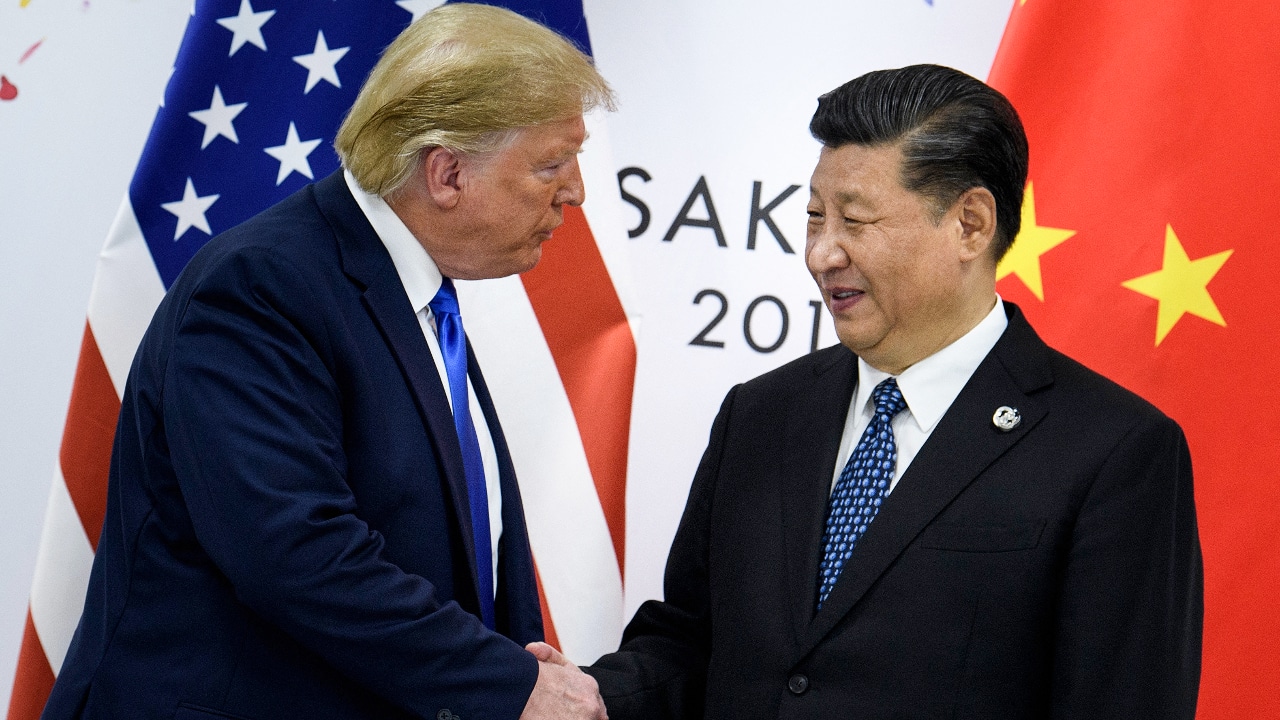Politics
China Engages in US Talks While Dismissing Trade Concessions

China has initiated discussions with the United States to address ongoing trade tensions but remains firm in its refusal to offer significant concessions. This dialogue marks a crucial moment in the economic relationship between the two nations, as both seek to manage their complex interdependence.
Wang Yi, China’s Foreign Minister, recently held talks with Janet Yellen, the U.S. Treasury Secretary, in a meeting that underscored the necessity of maintaining open lines of communication. The discussions, which took place in early October 2023, aimed to address various issues, including tariffs and trade policies that have strained relations in recent years.
Despite the talks, China has made it clear that it will not compromise on key trade policies. Beijing has emphasized its commitment to protecting its economic interests, particularly in light of the ongoing tariffs imposed by the U.S. on a range of Chinese goods. According to analysts, these tariffs, which amount to billions of dollars, have created significant friction in the bilateral trade relationship.
Understanding China’s Position
China’s stance is shaped by its desire to maintain a strong trade balance and support domestic economic growth. The government is wary of making concessions that could undermine its position in future negotiations. As a result, while dialogue is ongoing, the Chinese leadership is focused on reinforcing its economic sovereignty.
The current trade balance between the two nations remains heavily skewed in favor of China. In 2022, China’s exports to the U.S. reached approximately $505 billion, while imports from the U.S. totaled around $153 billion. This disparity has led to calls within the U.S. for a more equitable trade arrangement, but China has resisted these demands.
Chinese officials argue that the tariffs have not only harmed their economy but have also had adverse effects on American consumers. There is a growing recognition in China that both nations need to find common ground to foster a stable economic environment.
Future Implications for US-China Relations
The ongoing discussions come at a time when both countries face economic challenges. The U.S. is grappling with inflationary pressures and supply chain disruptions, while China is experiencing a slowdown in growth. These factors have prompted leaders to prioritize dialogue, even if substantive progress remains elusive.
China’s refusal to make concessions can also be seen as a strategic maneuver to strengthen its negotiating position. By maintaining a robust stance, Beijing aims to project confidence in its economic model and discourage what it perceives as coercive tactics from Washington.
While the talks between Wang Yi and Janet Yellen represent a step toward improved communication, they also highlight the complexities of the U.S.-China relationship. The two nations will need to navigate their differences carefully to avoid further escalation of tensions, particularly in the realm of trade.
As the world watches, the outcome of these discussions will likely have far-reaching implications not only for the U.S. and China but for the global economy as a whole. The stakes are high, and the path forward remains uncertain as both sides continue to assert their positions.
-

 World5 months ago
World5 months agoSBI Announces QIP Floor Price at ₹811.05 Per Share
-

 Lifestyle5 months ago
Lifestyle5 months agoCept Unveils ₹3.1 Crore Urban Mobility Plan for Sustainable Growth
-

 Science4 months ago
Science4 months agoNew Blood Group Discovered in South Indian Woman at Rotary Centre
-

 World5 months ago
World5 months agoTorrential Rains Cause Flash Flooding in New York and New Jersey
-

 Top Stories5 months ago
Top Stories5 months agoKonkani Cultural Organisation to Host Pearl Jubilee in Abu Dhabi
-

 Sports4 months ago
Sports4 months agoBroad Advocates for Bowling Change Ahead of Final Test Against India
-

 Science5 months ago
Science5 months agoNothing Headphone 1 Review: A Bold Contender in Audio Design
-

 Top Stories5 months ago
Top Stories5 months agoAir India Crash Investigation Highlights Boeing Fuel Switch Concerns
-

 Business5 months ago
Business5 months agoIndian Stock Market Rebounds: Sensex and Nifty Rise After Four-Day Decline
-

 Sports4 months ago
Sports4 months agoCristian Totti Retires at 19: Pressure of Fame Takes Toll
-

 Politics5 months ago
Politics5 months agoAbandoned Doberman Finds New Home After Journey to Prague
-

 Top Stories5 months ago
Top Stories5 months agoPatna Bank Manager Abhishek Varun Found Dead in Well









